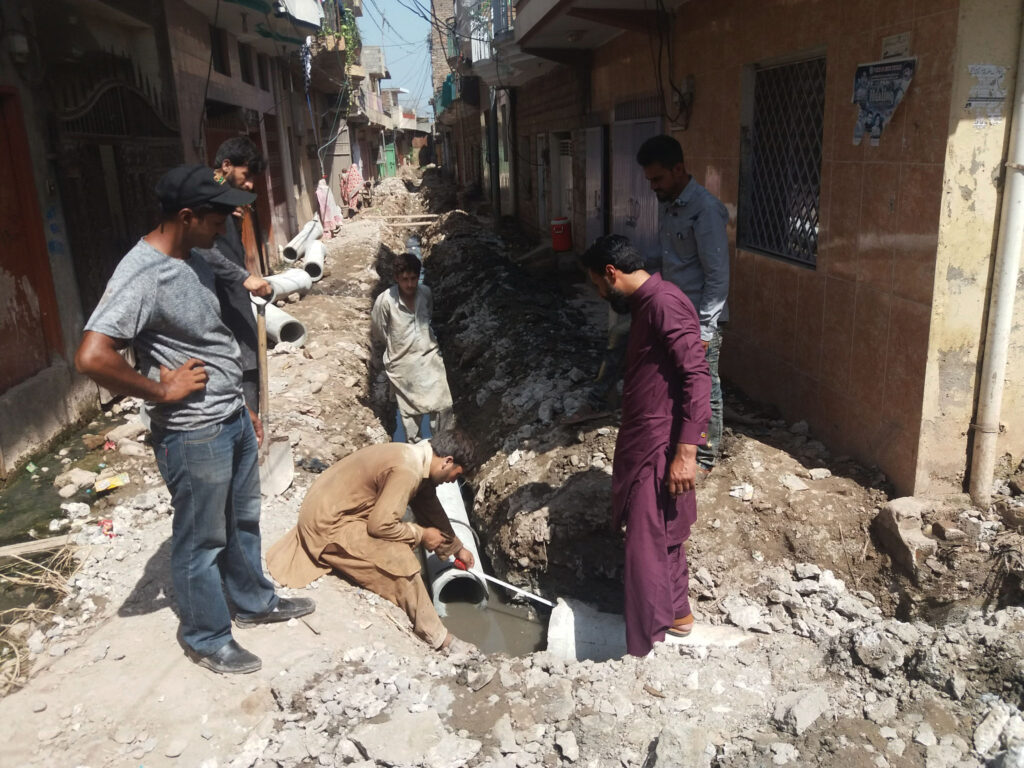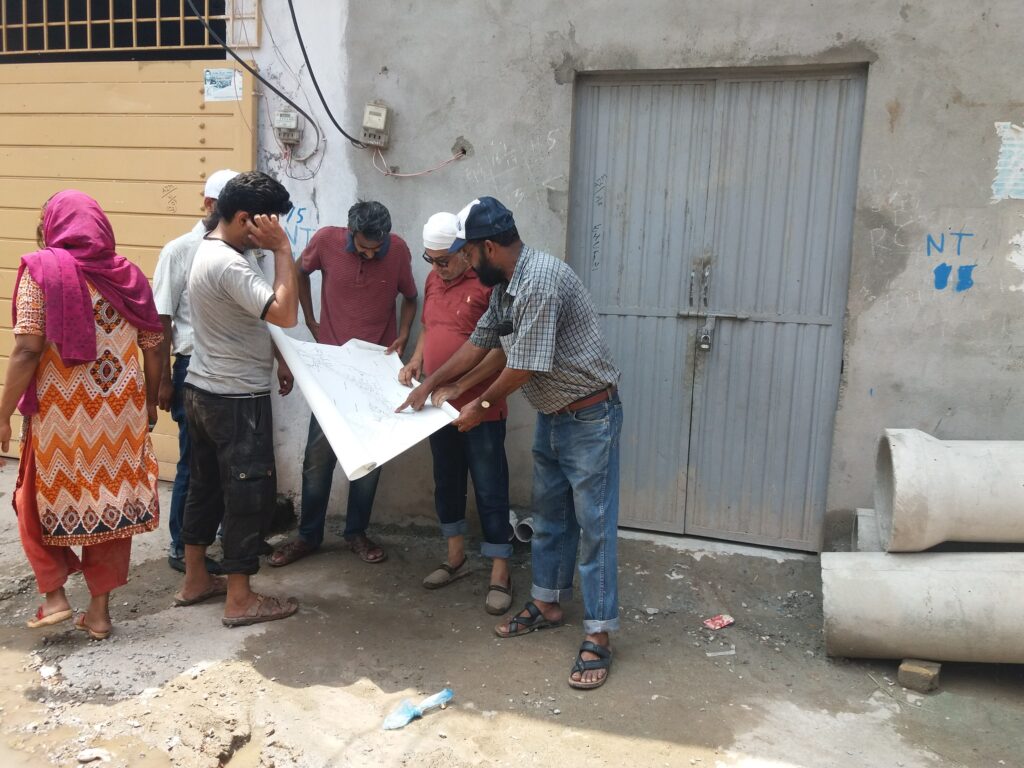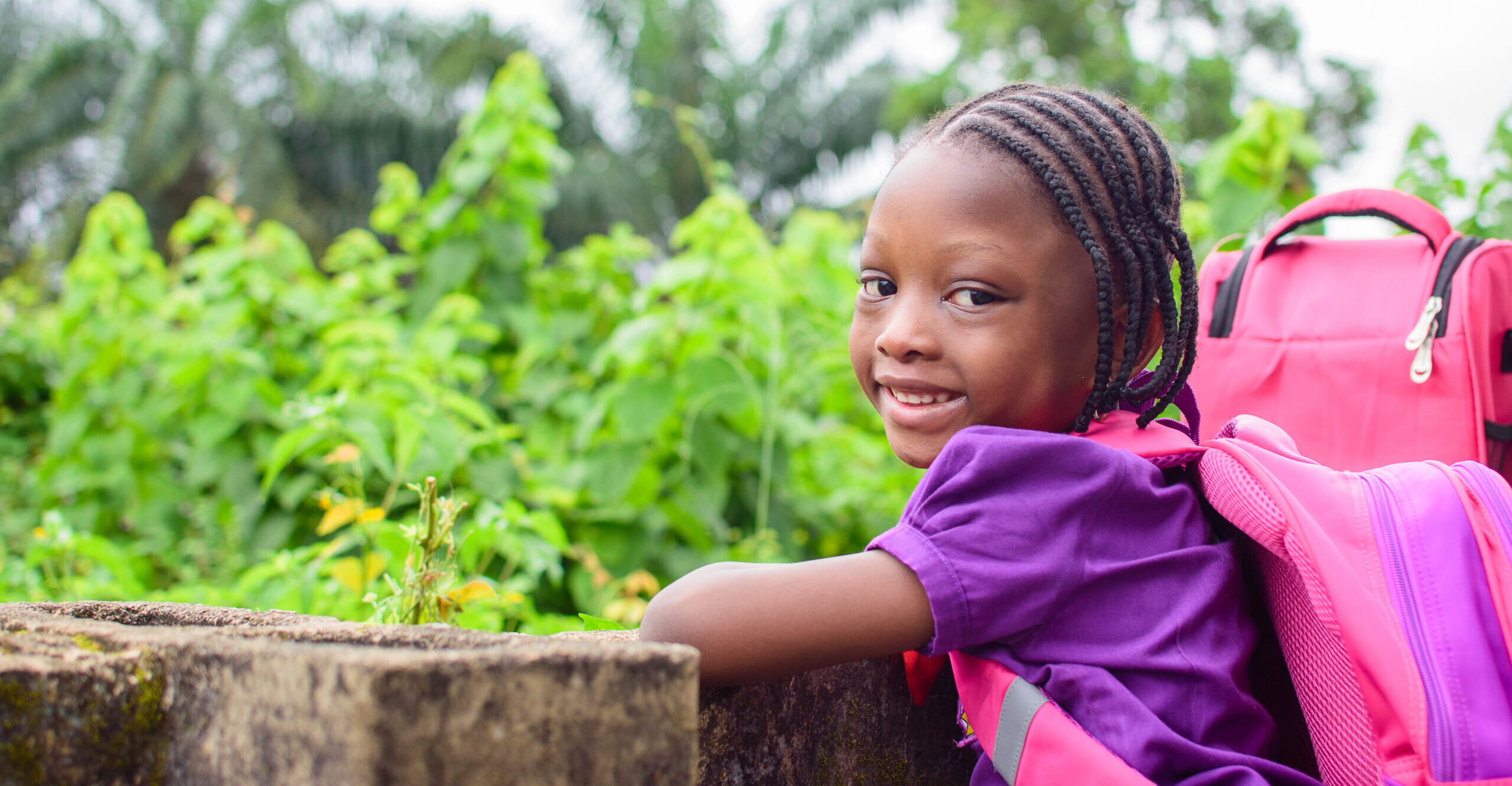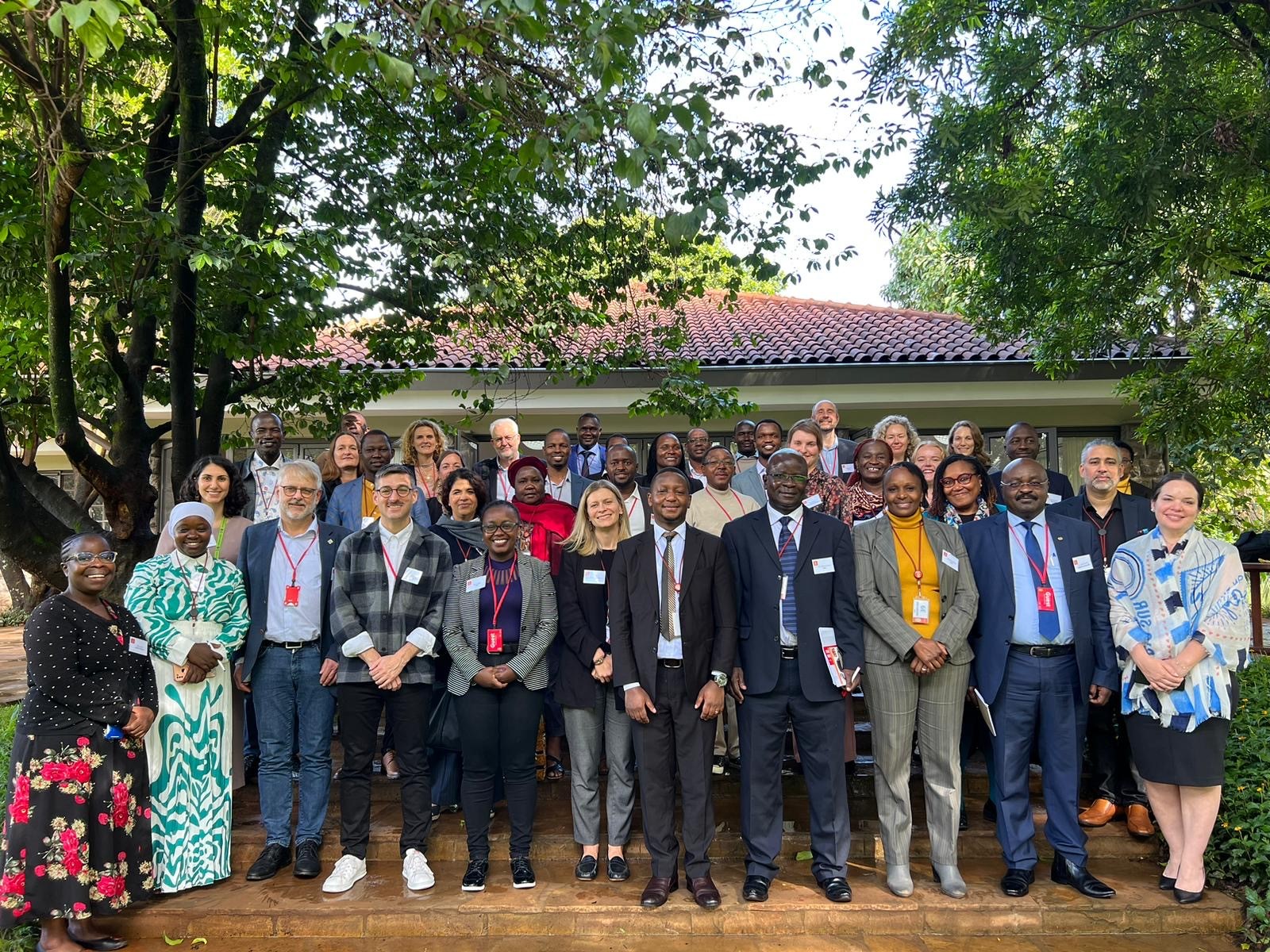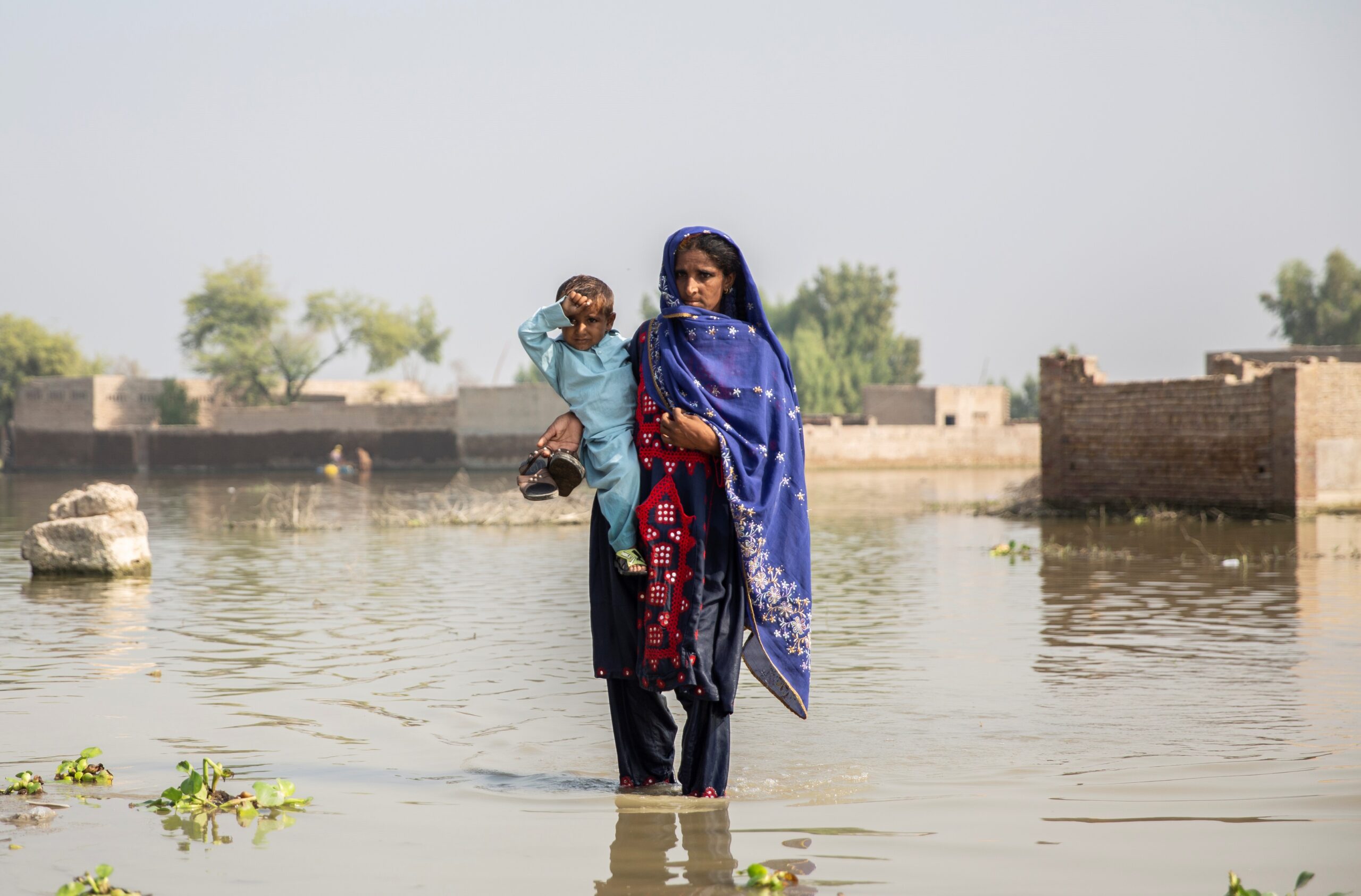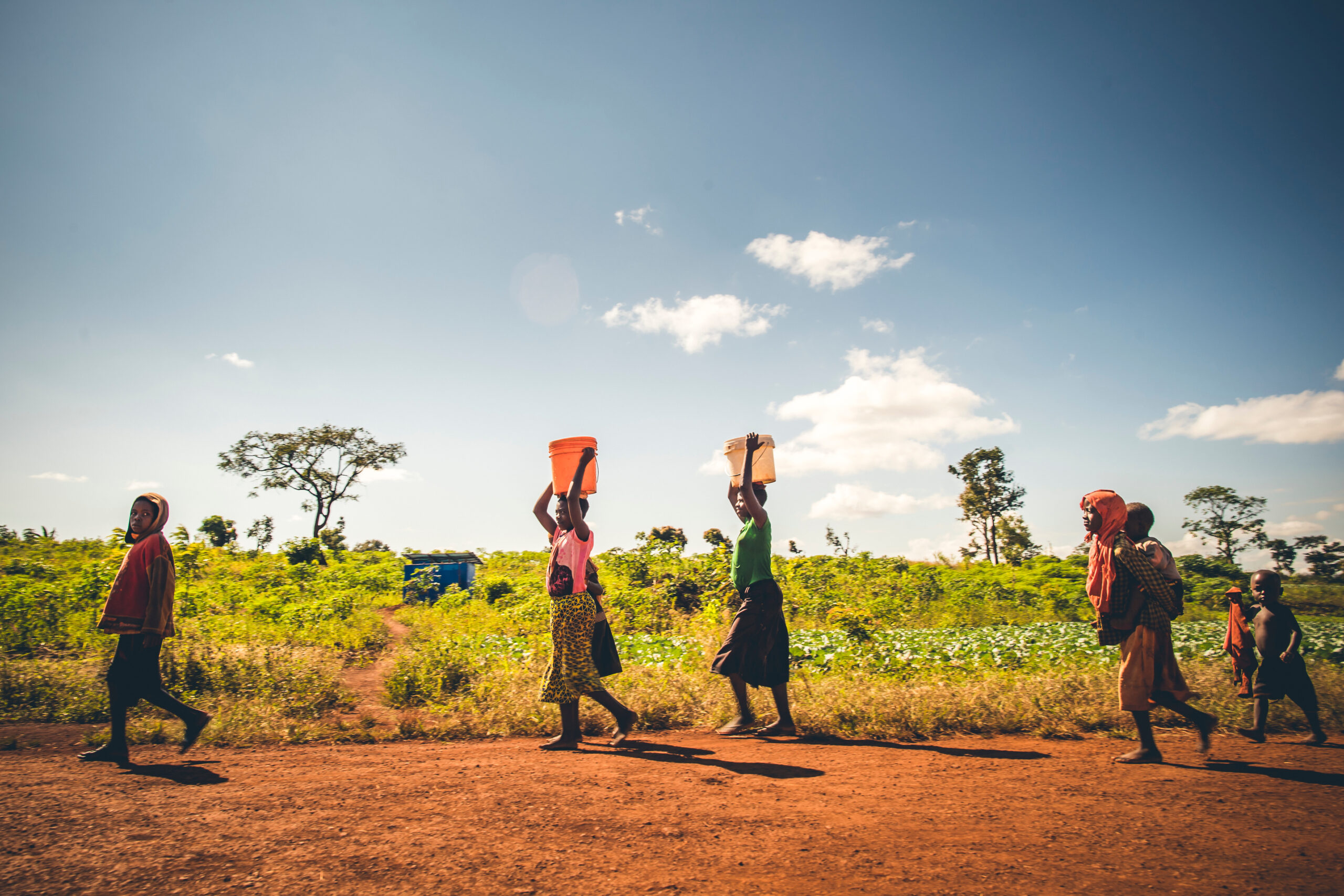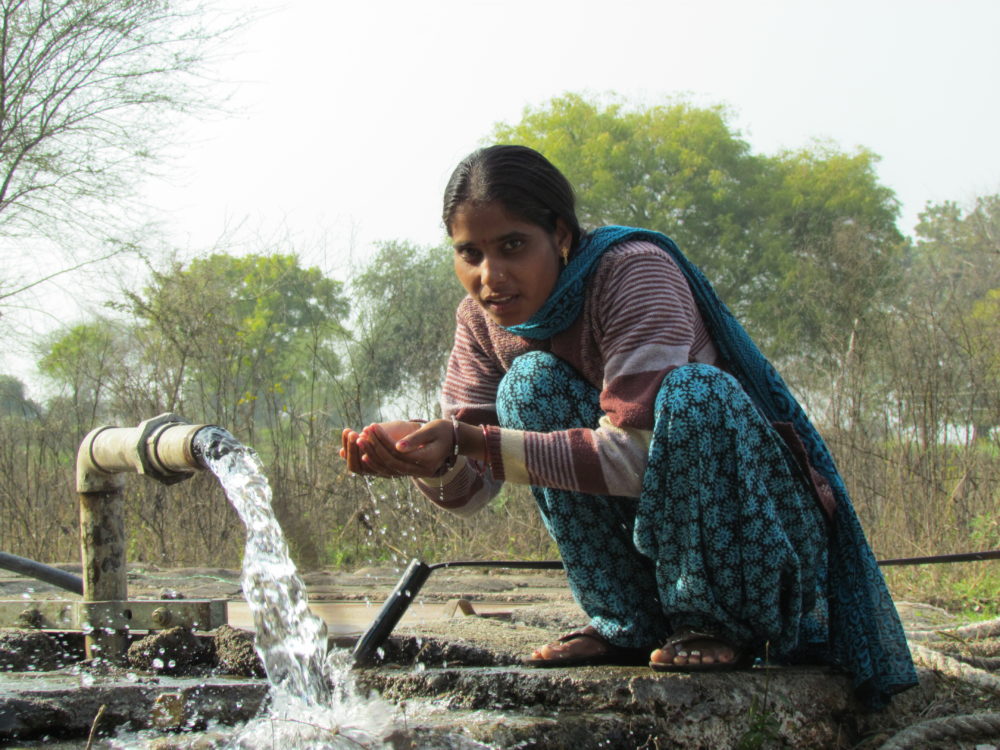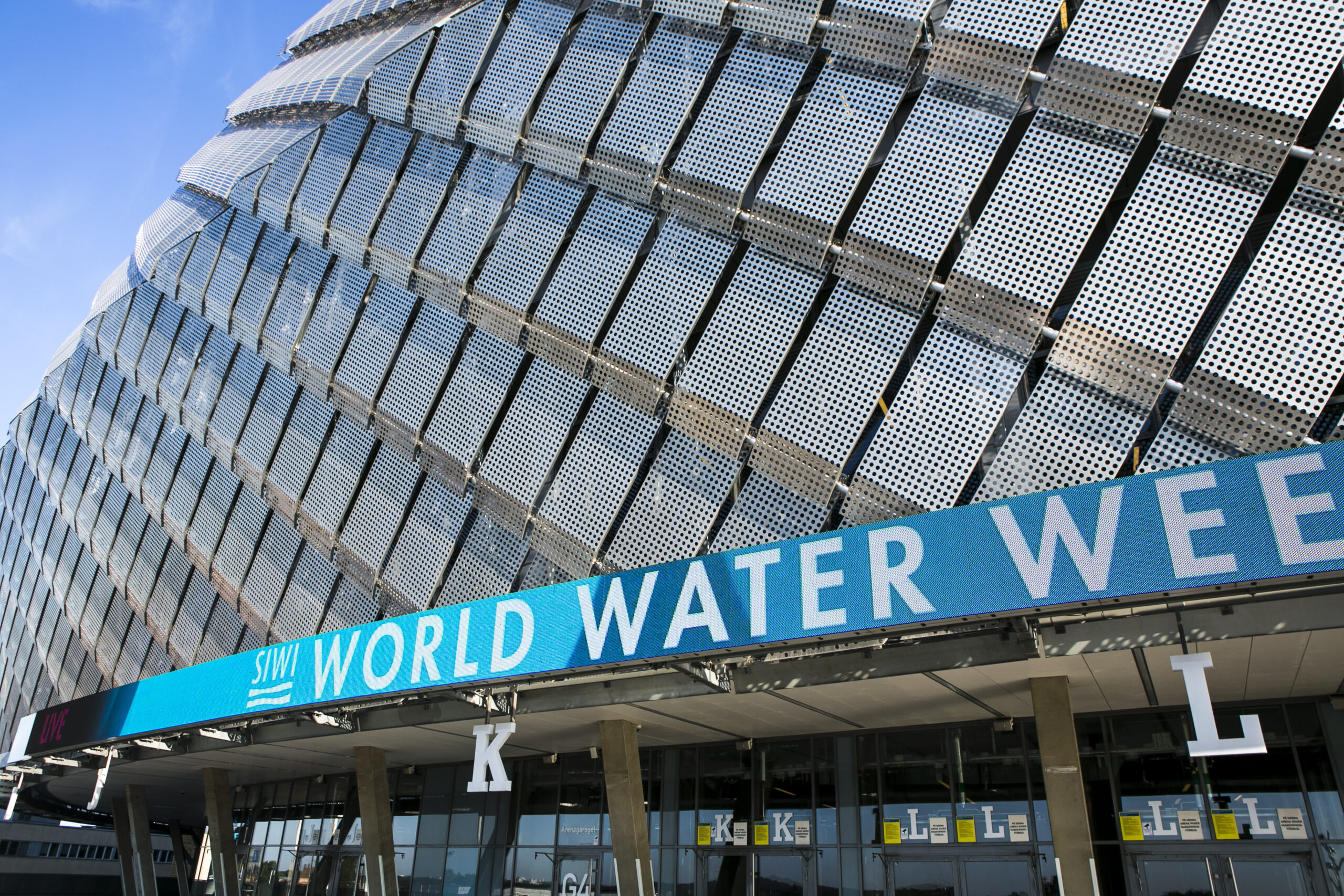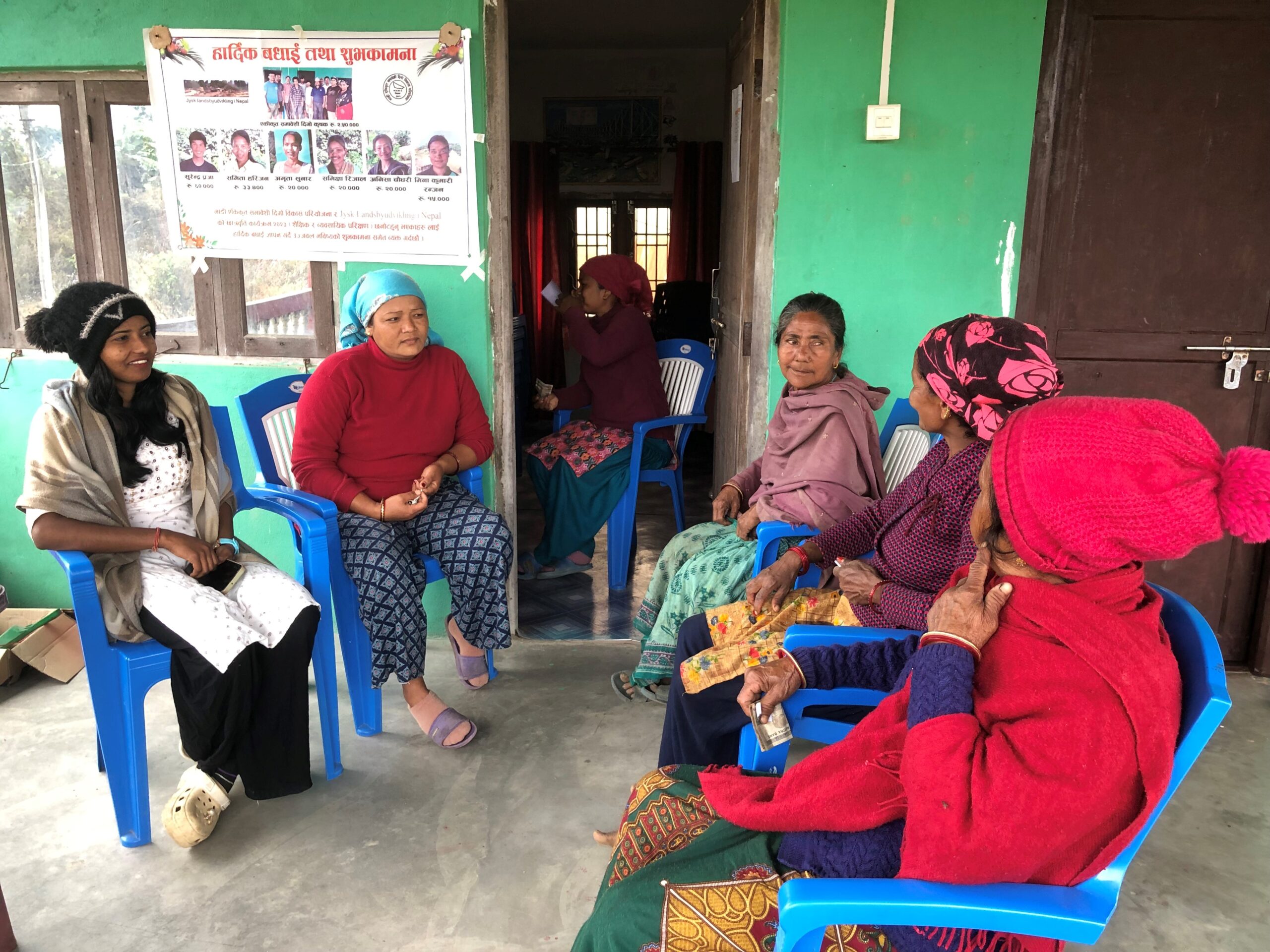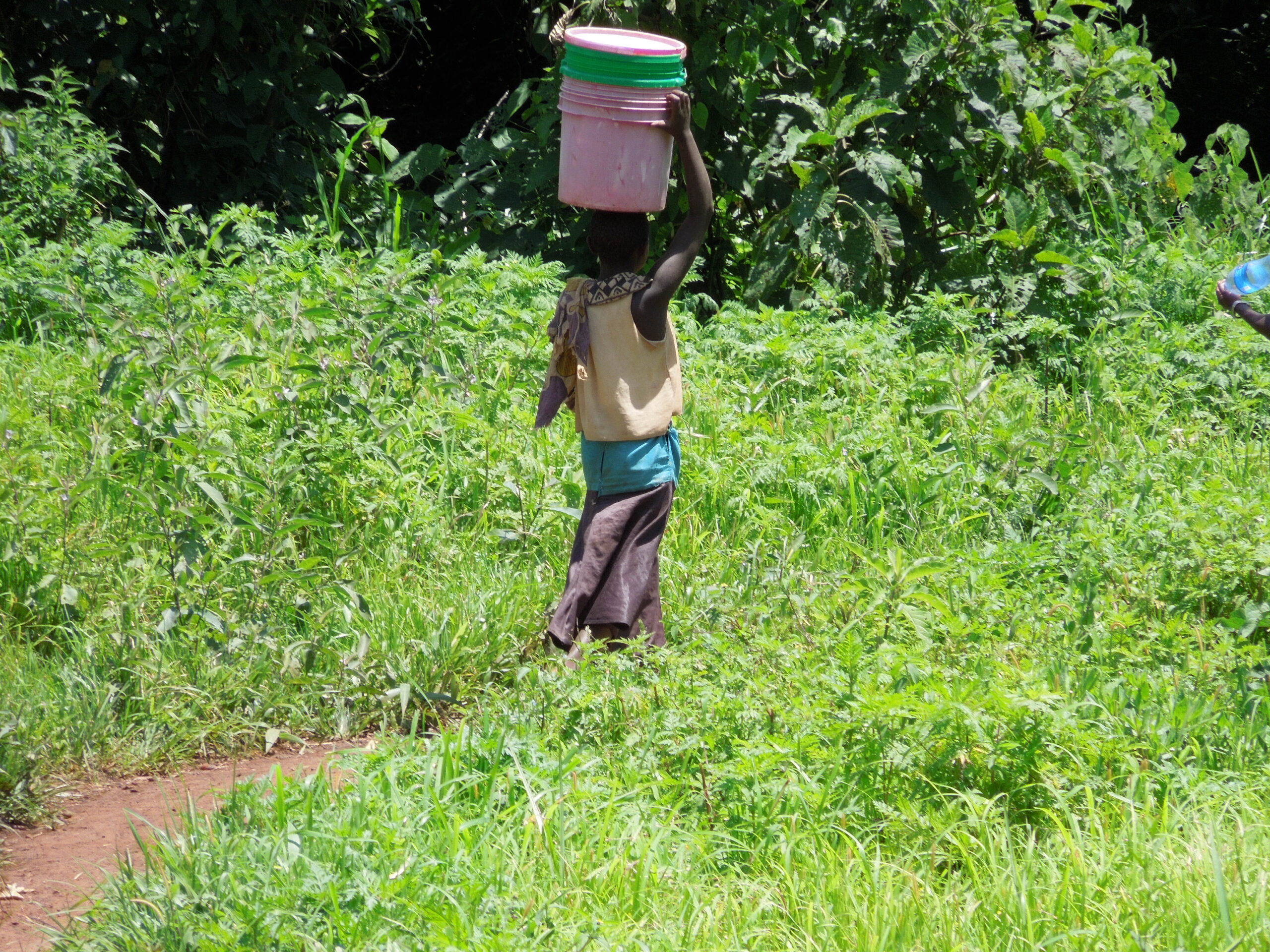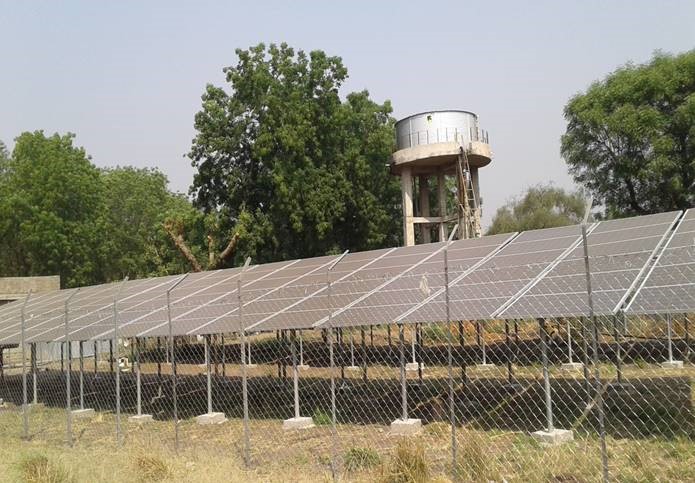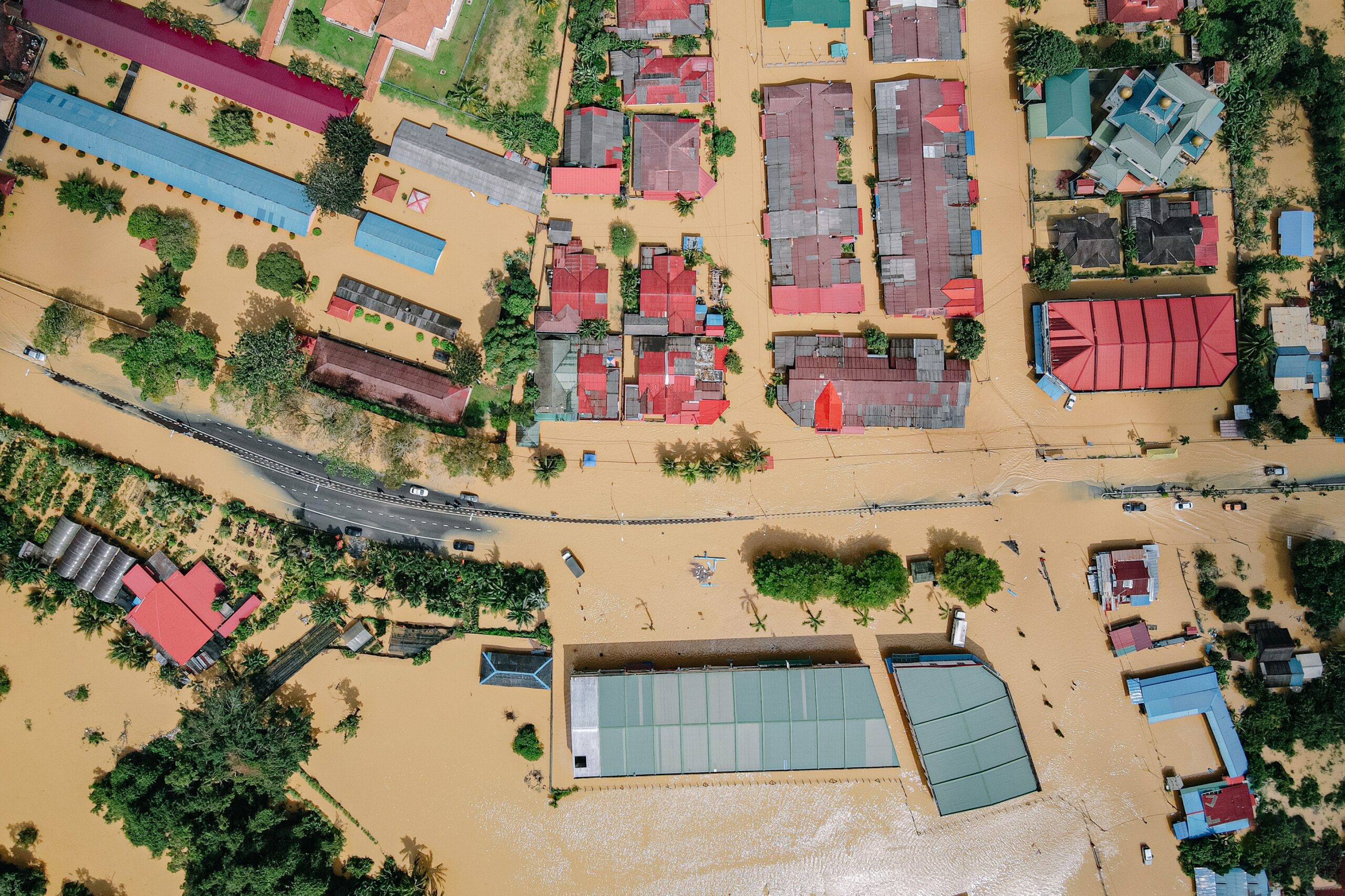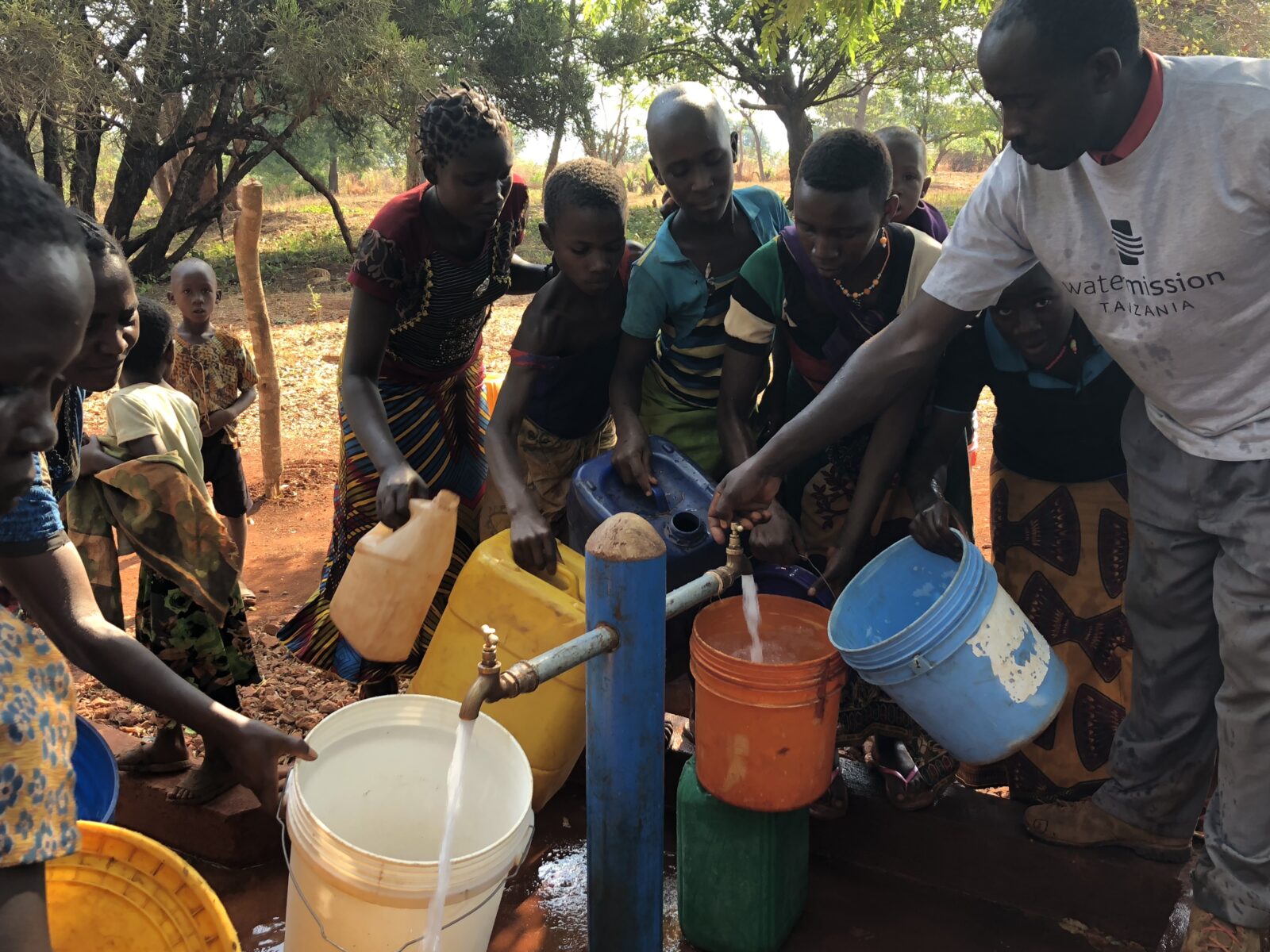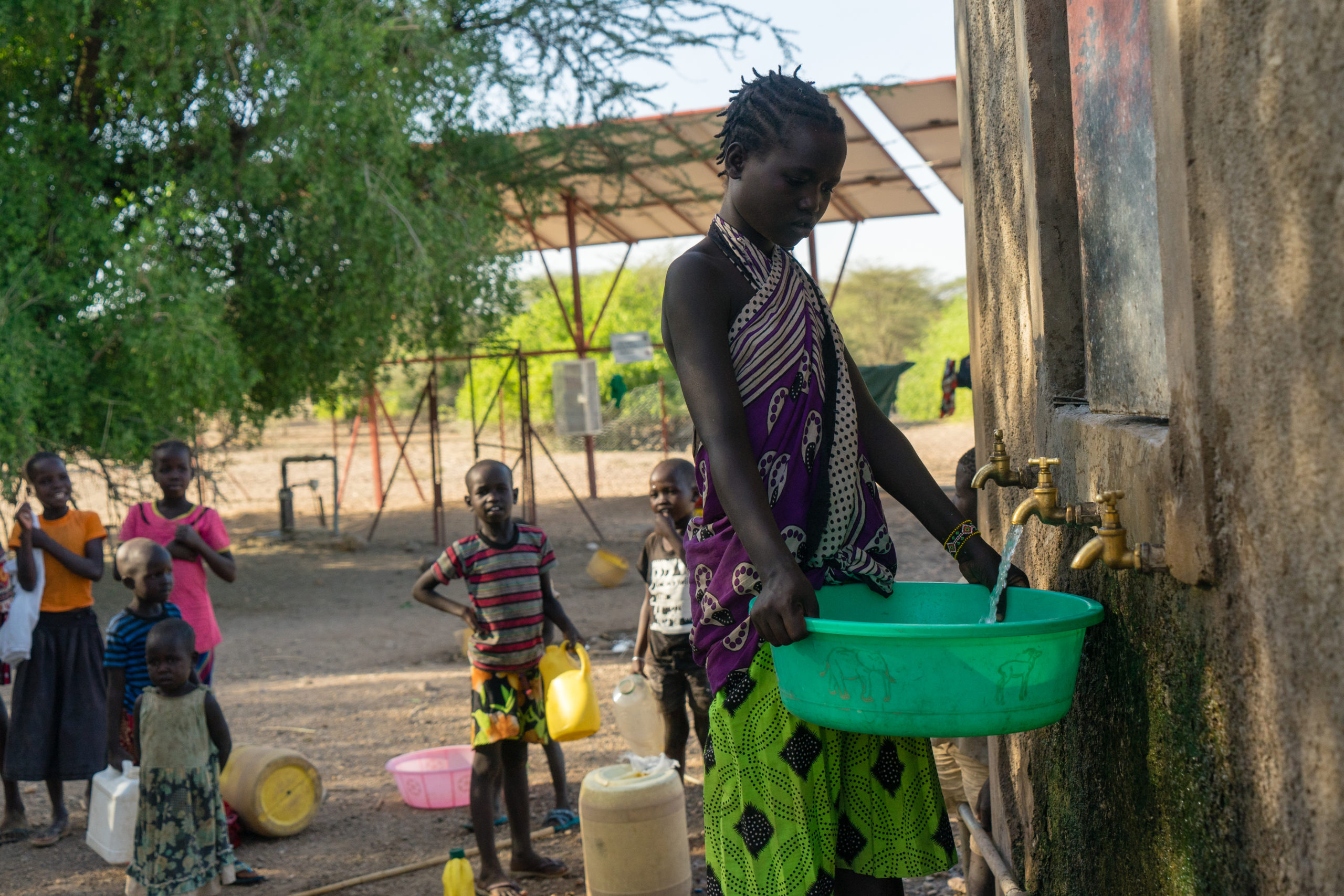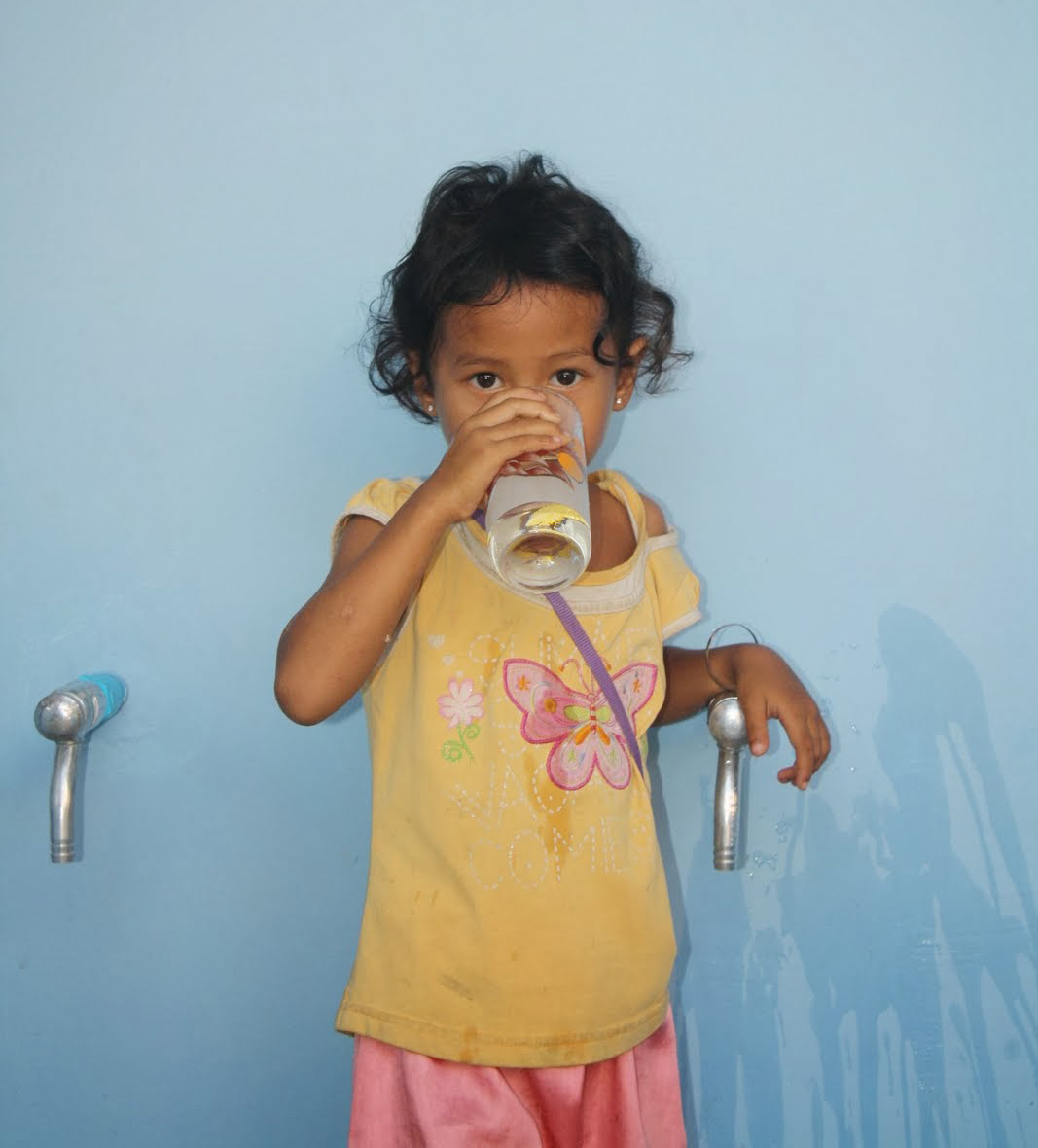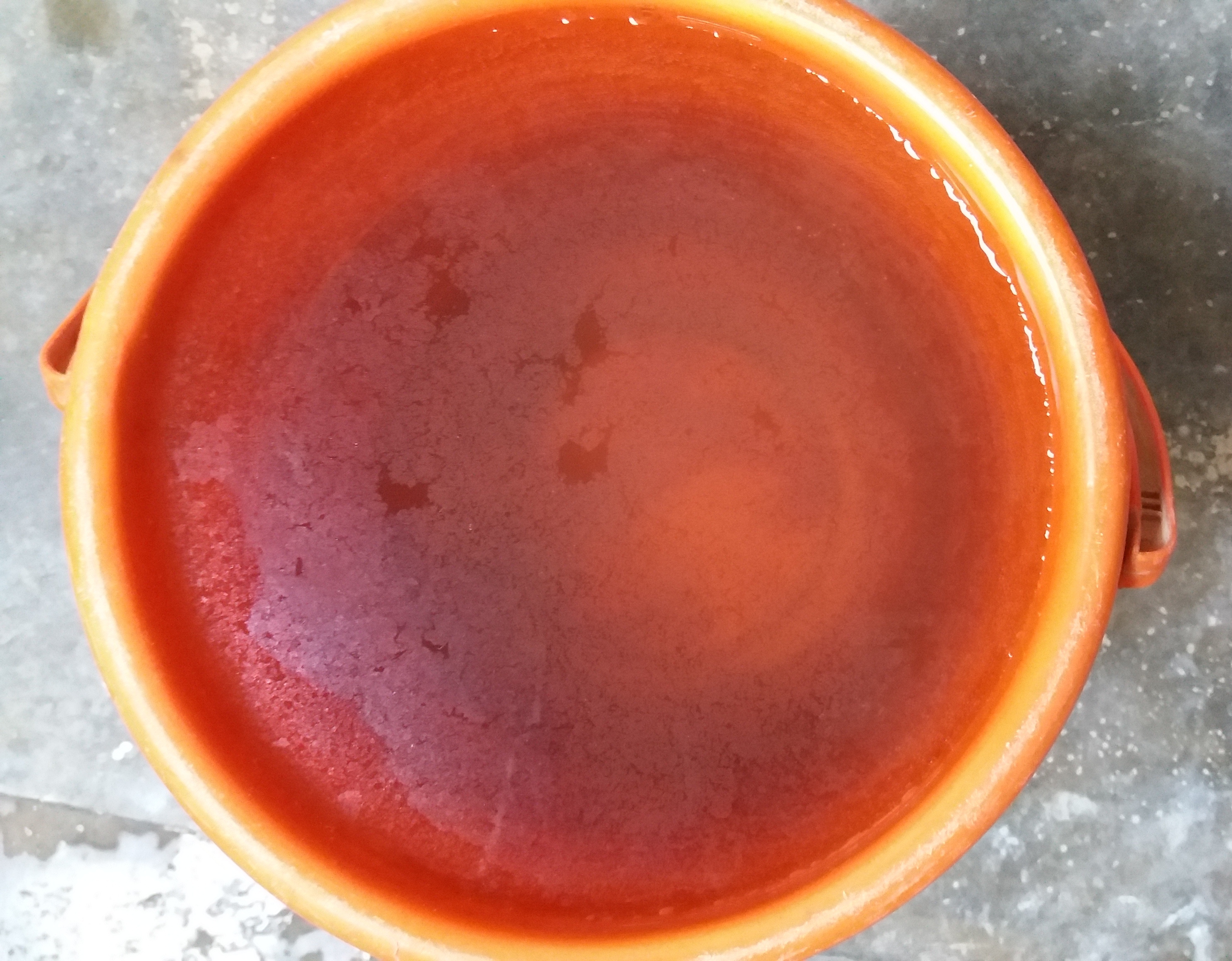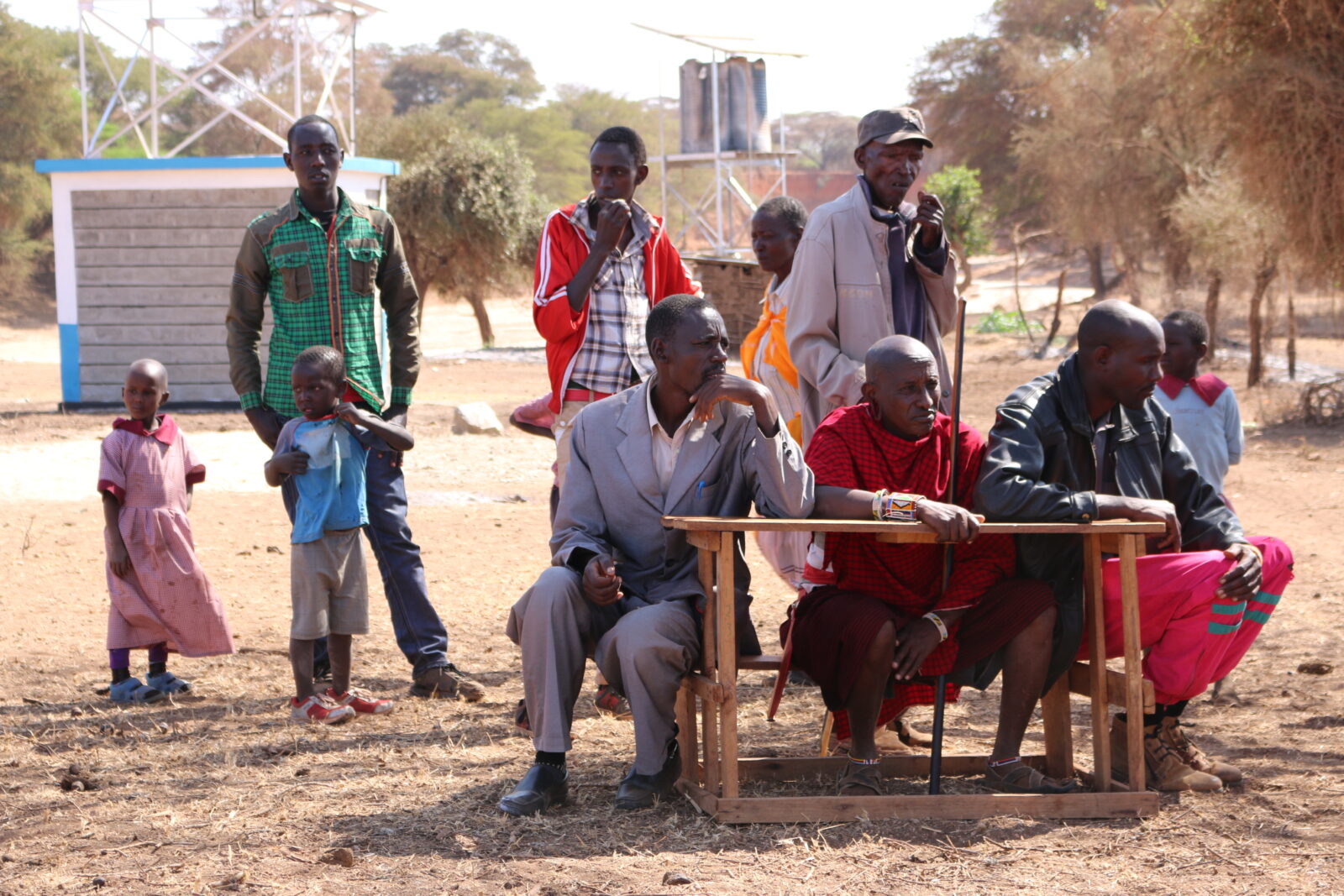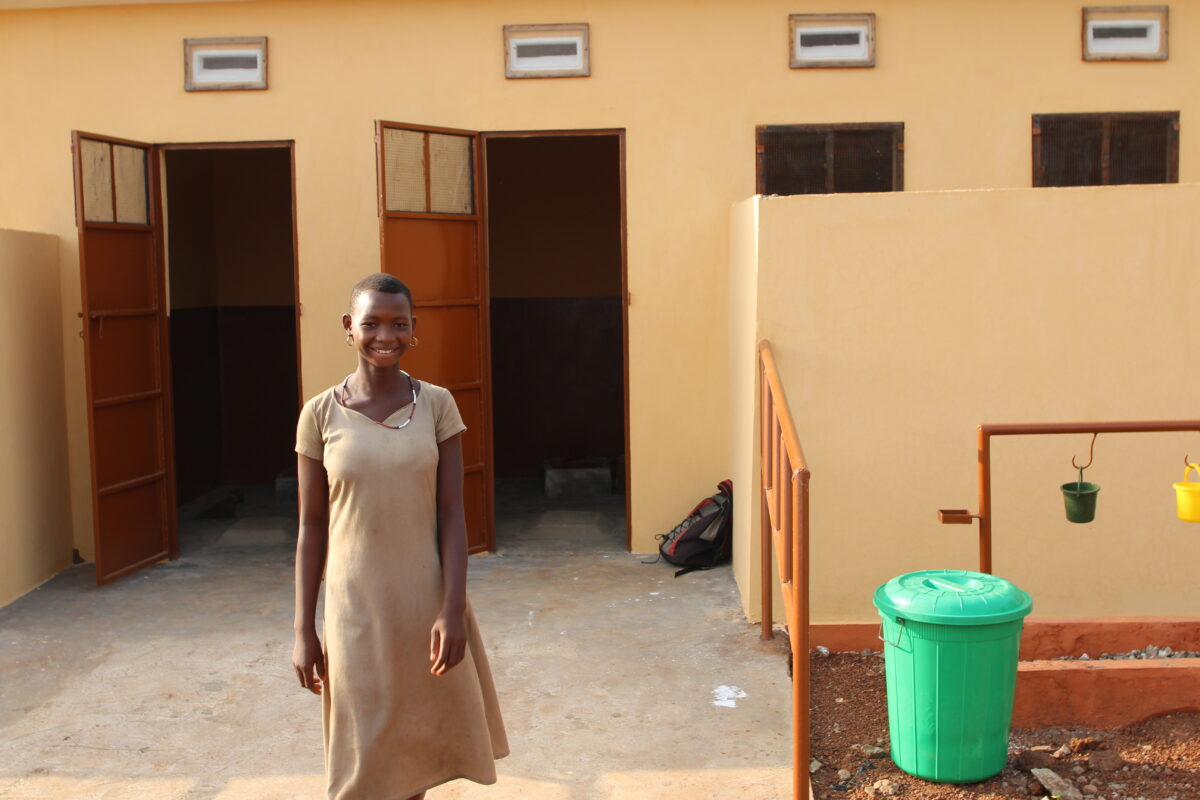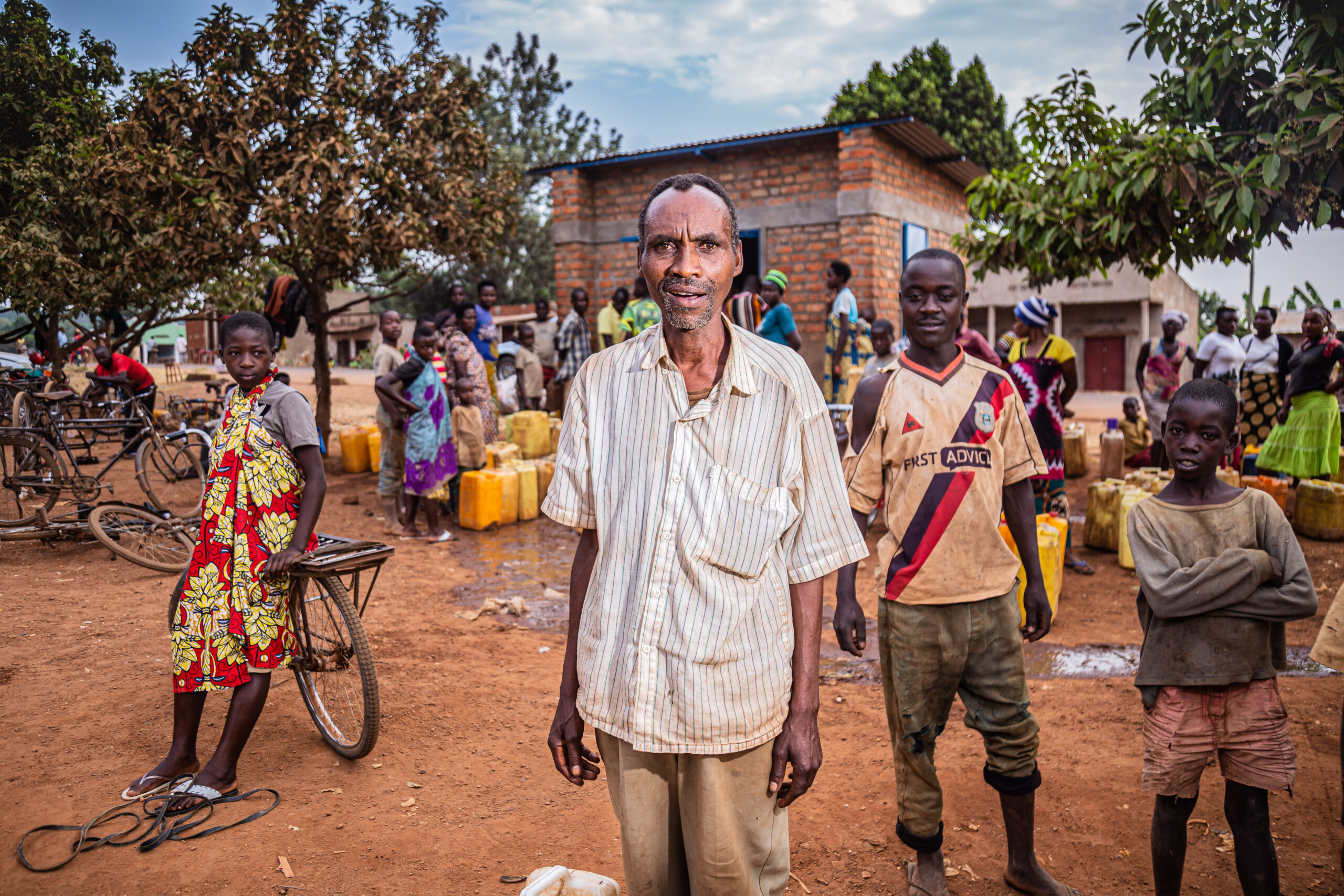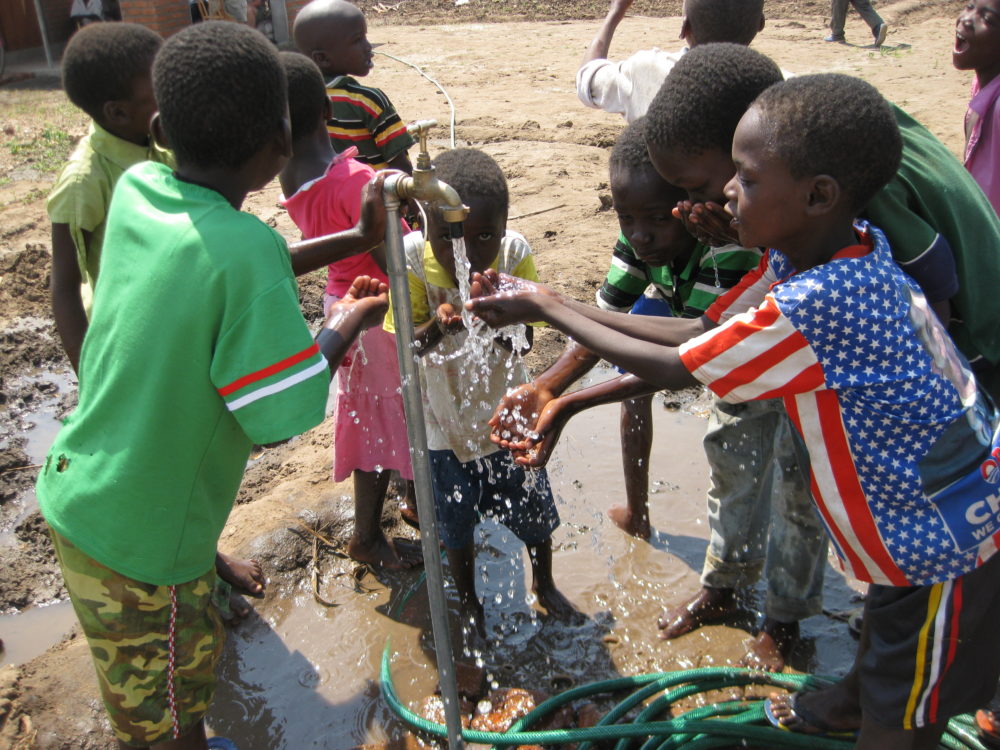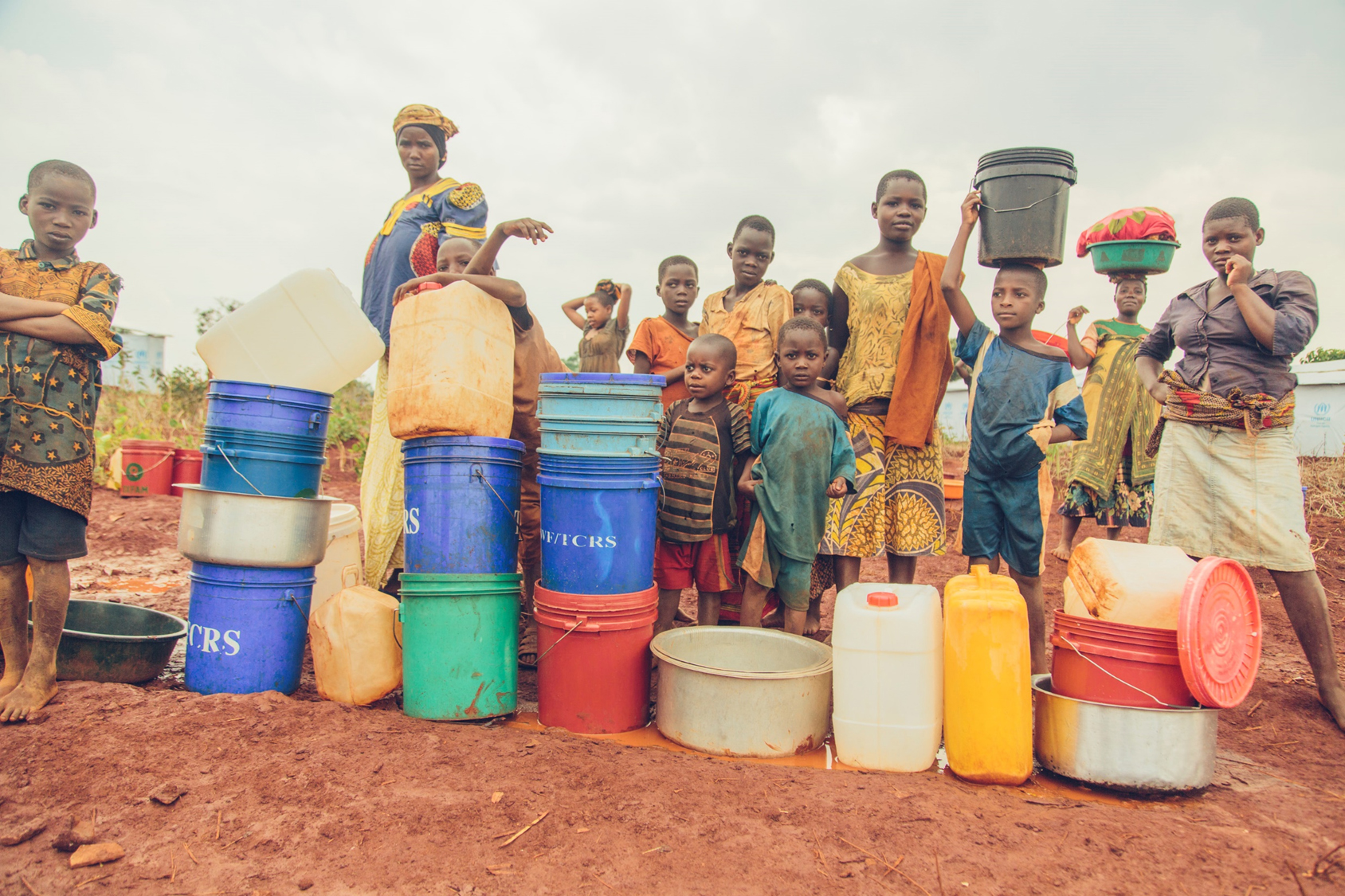In Pakistan, poor people’s housing (known as Katchi Abadis – the unofficial sector) are everywhere. In Karachi, a port city and commercial center of Pakistan, about 60 % of the total population of 23 million, live in these abadis. Orangi Town, situated in the periphery of Karachi, is a cluster of 113 low income settlements with a population of 1.5 million.
Orangi Pilot Project (OPP) began work as an NGO in 1980 in Orangi town which at the time, with a population of 0.8 million, was considered Asia’s largest squatter settlement. In 1988, following the success of its five basic programs of low cost sanitation, housing, health, education and credit for micro enterprise, OPP was divided into three autonomous institutions, of which the Foundation is partnering with the OPP Research and Training Institute. Since its inception, OPP-RTI has helped over 7,654 Million people get access to water and sewage system.
Low Cost Sanitation Model
The first self-built model, the Low Cost Sanitation Model, evolved from intense research and dialogue with the residents, led by Architect Perween Rahman who joined OPP in 1982. Orangi residents were provided the complete design with details of quantity of material and estimation of cost based on local market rates. The community mobilized to collect the money required to procure pipes, bricks, cement etc., and in actually digging trenches, laying the lines, constructing manholes and ultimately connecting the indoor latrines to the disposal pipes.
The lane, with an average of 20 houses, became the unit of organization in constructing the primary system. While working on the primary system, OPP also facilitated the residents in lobbying with the government to enable the lane to be connected to the secondary disposal lines, mains and treatment plants. OPP provided the government low-cost designs of secondary and mains for the construction around Orangi.
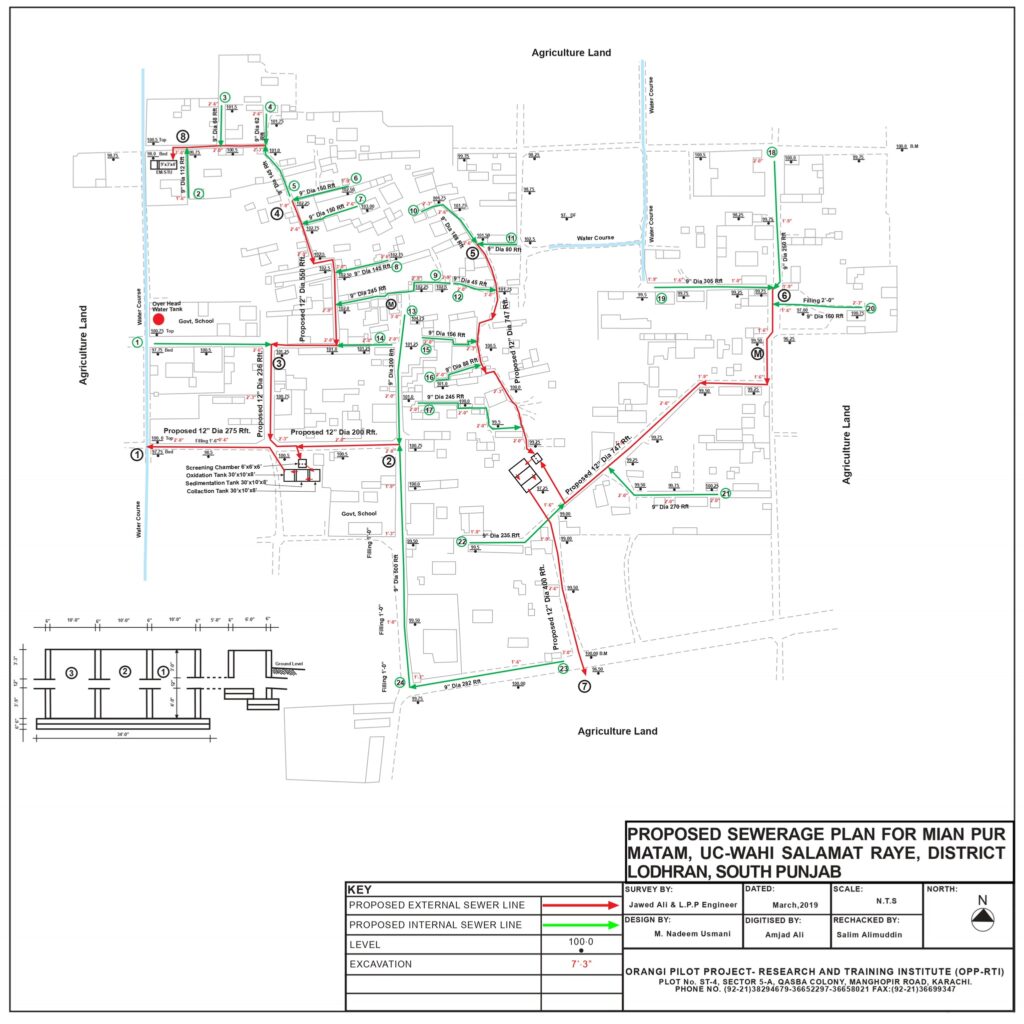
Illustration of proposed sewerage lines. Internal lines are community-built, while external lines are the responsibility of the public authorities. Image: OPP-RTI
Since 1988, OPP Research and Training Institute (OPP-RTI) has carried out Sanitation, Water, Mapping and Youth Training Programs. OPP-RTI continues to work with both the government and the people, providing both partners with implementable designs. It gives them estimates and eventually monitors construction of the sewage and water projects. Replication of the model continues all over Pakistan where OPP-RTI works with local organizations representing the people in tandem with Local Governments.
Expansion in Punjab, Sindh and Khyber-Pakhtunkhwa
The Foundation will be funding replications of the Low Cost Sanitation Model in four areas in Punjab, Sind and Khyber-Pakhtunkhwa. Through the programme, we will be able to assist 924,960 homes with altogether 1,753,947 people to get access to latrines and a complete modern underground water and sewage system.
The programme will last three years, from June 2020 through to June 2023. Funds from the Foundation will cover mapping and surveying, design and estimation, training of community in construction of the model and finally monitoring the work.
OPP-RTI dispatched four teams in mid July 2020 to conduct mapping and level surveying in the four areas. The teams are back in Karachi after gathering data, and imparting community-based mapping training to the local community leaders. The work on designing and cost estimations of the system has begun in earnest.
The OPP Research and Training Institute method
OPP-RTI does not fund construction. It teaches people to do so through building their capacity by giving them a low cost design, training in mapping, surveying and construction, and overseeing and guiding the implementation. OPP-RTI designed systems have borne the test of time as lines laid in 1982 still function.


